If you are ingesting some food into your body, it must be digested easily. However, many have a tough time digesting food. Digestion-related issues can lead to problems as we age.
Digestion and absorption of food are crucial because then only will one receive all the nutrients required for the proper functioning of the body. Do you have poor digestion? You are not alone.
If you are someone who has poor gut health, then you would want to eat foods that get digested easily. You need to be light on your digestive system.
How do you know what is good for you? In this article, we will give you a detailed overview of easily digested foods and what foods you should avoid. By making a few changes, you will notice a significant difference.
What Are Easily Digested Foods?
What makes a portion of food easily digestible? A food that is low in fibre will be digested easily. But, this does not mean that fibre is not good. On the contrary, high-fibre foods should be included in a balanced diet.
Still, many suffer from digestive inflammation. Therefore, it becomes necessary for them to lower their intake of fibrous foods. What can you do? Simply, look for some substitutes or make some changes to your diet.
There are many foods that we consume without knowing their composition. So, it is better to avoid foods that are excessively high in fibre, contain artificial sweeteners, are fried and have a lot of fat content. Consumption of such foods can often weaken your digestion process and can lead to serious adverse effects.
List Of 12 Easy Digesting Foods
Ripe Bananas –
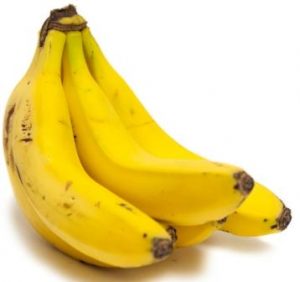
The banana qualifies to be a superfood due to its exceptional nutritional value. The riper it is, the easier it is to digest it. The banana is rich in carbohydrates, potassium, vitamins and minerals.
It also has natural sugar, which can help moderate blood sugar levels. Moreover, it is a powerful antioxidant as it contains dopamine and catechins. Antioxidants protect the gastrointestinal tract from oxidative damage.
However, do not consume more than two bananas a day.
Bread:
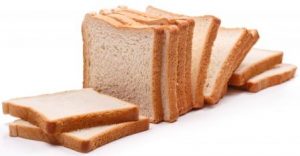
You might not be expecting bread to be on this list. However, white bread is an easily digestible food. The less fibre content present in white bread makes it digestible.
However, quite obviously, one should not consume bread every day. It does not have a lot of nutritional significance. Bread is rich in vitamin B6, folic acid and calcium.
You can consume it on days you feel your gut is doing poorly. So, make a sandwich out of it or top it according to your preference. Avoid whole wheat bread because it is high in fibre too.
Soup:
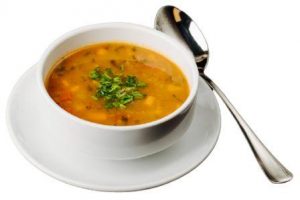
Soups and broths promise flavor and are easy on your stomach too. If cooked the right way, they can be a great source of nutrients and provide the fibre that gets digested easily and rapidly.
You can add vegetables or chicken and make it rich in nutrients, vitamins, and minerals. If you cook the ingredients, then it automatically becomes easier to digest. It is so because the components get broken down before intake, so once you consume them, your digestive system does not take a lot of loads.
White Rice:
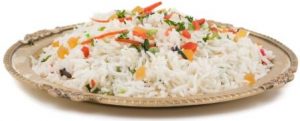
White rice is a staple that is available and consumed daily. The good news is that it is also digestible and has satisfactory nutrient value.
It is low in fibre but is still considered to be a great source of energy and has a good amount of Vitamin B and iron. Apart from this, plain cooked rice is cholesterol free as it has no fat. It is also gluten-free and resistant to starch that keeps the colon healthy.
So, you can always lean on rice. It is a staple in most households for this reason. However, to retain its digestibility, pair it with food that is also low in fat.
Eggs:
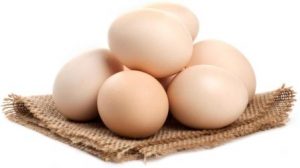
Eggs are by far the best source of protein. They are also pretty digestible and, at the same time, provide you with all the essential nutrients, vitamins and minerals.
You can prepare your eggs in any form you wish to. The best way, however, is to hard boil them, but if you scramble and poach them, make sure to avoid butter. Instead, you can add olive oil.
While these foods are easily digestible, the addition of some toppings is what makes them unhealthy. So, try to choose better.
Yogurt:
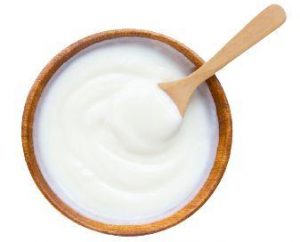
Yogurt is another food that is good for your digestion. It is made from fermented milk and is rich in probiotics. Now, probiotics are already present in our gut and, therefore, consumption of yoghurt further enhances digestibility.
Yoghurt also has all the integral dietary nutrients like protein, vitamins and minerals. However, if you are lactose-intolerant, then look for plant-based yoghurts.
Lean Meat:
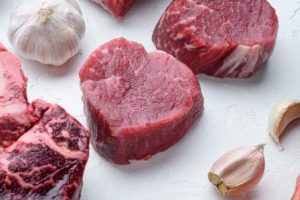
If you are a non-vegetarian, then lean meat can be a reliable option to lean on. Lean meats have less fat content and that is what makes them easier on the digestibility index.
So, chicken, turkey, fish, and skinless options of meat should be preferred over red meat. It will provide you with a good dose of protein and still be light on your digestion. Due to the lower fat content, they are better as fats are difficult to digest.
Sweet Potato:
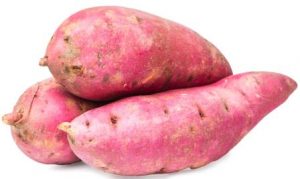
Sweet potatoes are another good choice that you can include in your diet. It is a good source of fibre, vitamins, minerals, and starch.
The fibre present in sweet potatoes is soluble. So, it will be easily digested. Moreover, sweet potatoes are known to have antioxidants and are rich in potassium. The presence of these nutrients promotes better gut health.
Cheese:
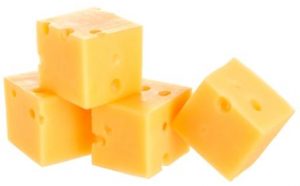
Cheese is another dairy product that is made from curdling milk. It is rich in probiotics, which improve gut health. So, snacking on cheese can never go wrong.
However, it goes without saying that if you suffer from lactose intolerance, then it will be hard for your stomach to break down lactose.
Oatmeal And Cereals:
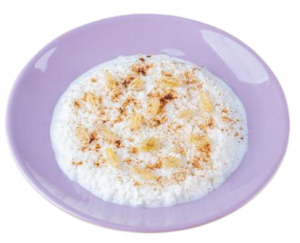
Oats are popular for their nutrient value. It contains fibre, protein, vitamins, minerals, and antioxidants. But, flaky oats can be difficult to digest.
There is an alternative option you can choose instead. Go for processed quick oats and cereals. These are already broken down and hence it is pretty easy for you to digest.
Low-fat Milk:

Dairy products are generally easy to digest. It is because they are again low on fibre.
Skimmed or low-fat milk is a good substitute because, due to its low-fat content, it becomes easier to digest. However, if you are lactose intolerant, dairy products can have the opposite effect and lead to an array of digestive problems.
Watermelon:
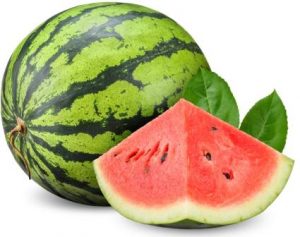
Watermelon is a fruit that you can eat without any hesitation. It is relatively easy to digest. It also has a lot of nutrients like Vitamin A, Vitamin C, biotin, etc.
Watermelon is composed of water mostly and is low in fibre. It takes just 20-25 minutes for your body to digest watermelon and other such melons. It is the reason why watermelon can improve digestion.
What Foods Should You Avoid?
Now that you know which foods are easily digested, it is imperative to know which foods should be avoided. Here, we have curated a list for you-
Spicy Foods

Spicy foods should not be consumed if you suffer from frequent indigestion. It is because they are not only difficult to digest but also cause a lot of digestive issues like constipation, diarrhoea, and cramps.
Spicy foods have capsaicin. Capsaicin can lead to inflammation of the gastrointestinal lining. Therefore, if you have weak digestion, then do not consume spicy foods.
High-fat Foods And Fried Foods

Foods that have high fat can also lead to poor digestion. The presence of high fat leads to contractions in the stomach. It can either lead to diarrhoea or lead to constipation.
Fatty foods take a longer time to digest, especially saturated fats and trans-fats. The foods that are high in fat content include red meat, butter, baked foods, frozen pizza, bacon, etc. So, consume these in a limited amount.
Similarly, fried foods that contain a lot of greases are extremely rich in fat content. These foods do not have any significant nutrient value, and hence, your digestive system takes a toss. Your stomach and intestines have to do a lot of work to digest all this, and still, there are chances of bloating and diarrhoea.
Food With Artificial Sweeteners

There is a myriad of packed and processed foods available on the market. A good number of these foods have artificial sweeteners added to them. Artificial sweeteners are synthetic sugars and therefore are not appropriate for your body.
If a food item or drink has an artificial sweetener added, then avoid consuming it because these sweeteners do not get digested. They also harm gut bacteria and lead to an imbalance of good bacteria that promotes digestion. These sweeteners can also lead to an increase in blood sugar levels.
The most common foods that contain artificial sweeteners are baked goods, puddings, jams, canned foods, ketchup, granola, soft drinks, and many more.
Acidic Food
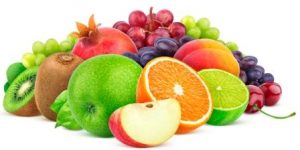
Our stomach has a pH of 3.0-3.5. Therefore, it becomes imperative to maintain that pH because, at this level, some enzymes pivotal in the process of digestion are released.
Foods that have excessively high acidity can mess up your digestion process. These include foods like lemons, plums, blueberries, grapes, blackberries, kale, and white cabbage. A diet that is rich in acidic foods can affect your gut health.
It is suitable to eat a balanced diet that includes the right proportion of nutrients and balances the pH levels in your stomach.
Alcohol And Caffeine

Caffeinated beverages and alcoholic drinks show some side effects on our digestibility. Consuming an excessive amount of alcohol and caffeine leads to relaxation of the lower oesophageal sphincter.
If the lower oesophageal sphincter loosens, it can lead to indigestion. Caffeinated beverages and alcoholic drinks also stimulate the over secretion of stomach acid, which further causes inflammation in the lining. So, it is essential to keep a check on the intake of such drinks.
FAQs
What are the symptoms of lactose intolerance?
Lactose intolerance is common in those who do not have lactase enzymes. These people, therefore, have a hard time digesting dairy products that are rich in lactose. Their digestive system fails to break down lactose and hence leads to a lot of digestion-related issues.
The main symptoms are as follows –
- Bloating
- Belching
- Stomach pain and cramps
- Gas
- Fat in stool
- Nausea
- Constipation
How can we boost our digestion?
Is there a way to boost your digestion? Yes, there are some simple things that you can do to ensure a smooth digestive process –
Drink Enough Water – You need to stay hydrated. Drink at least two litres of water every day. However, while eating meals, sip water and do not drink a lot, because this could lead to basicity in your stomach.
Exercise Daily – Keep yourself moving and do a quick thirty-minute workout. It can reduce constipation and prevent bloating.
Chew Properly – When you are eating your meals, do not be in haste. Chewing will help with the mastication of food and ensure that proper and easy breakdown occurs in the stomach.
Stress –
If you are stressed out, then it could have a lot of adverse effects. One of which affects your digestive system too. It can lead to loss of appetite or trigger other issues like diarrhoea, constipation, gas, or indigestion.
Curd–
Eating curd or yoghurt provides your body with essential probiotics. Probiotics are bacteria that enhance your gut health.
CONCLUSION
When it comes to digestion, numerous factors affect the proper functioning of the digestive system. What can you do? Well, start by being mindful and practising a healthy lifestyle.
The key to happy and healthy wellbeing lies in your own hands. So, include foods that are nutritious and good for you. Eat real food and not absolute junk. Including some changes can assist you in the long run.


